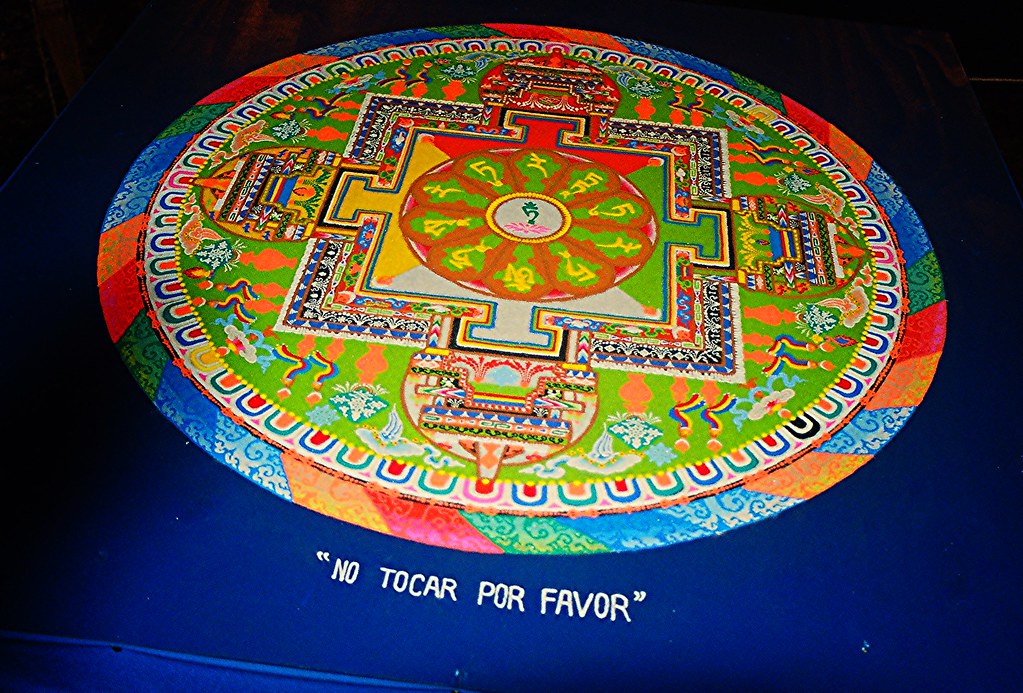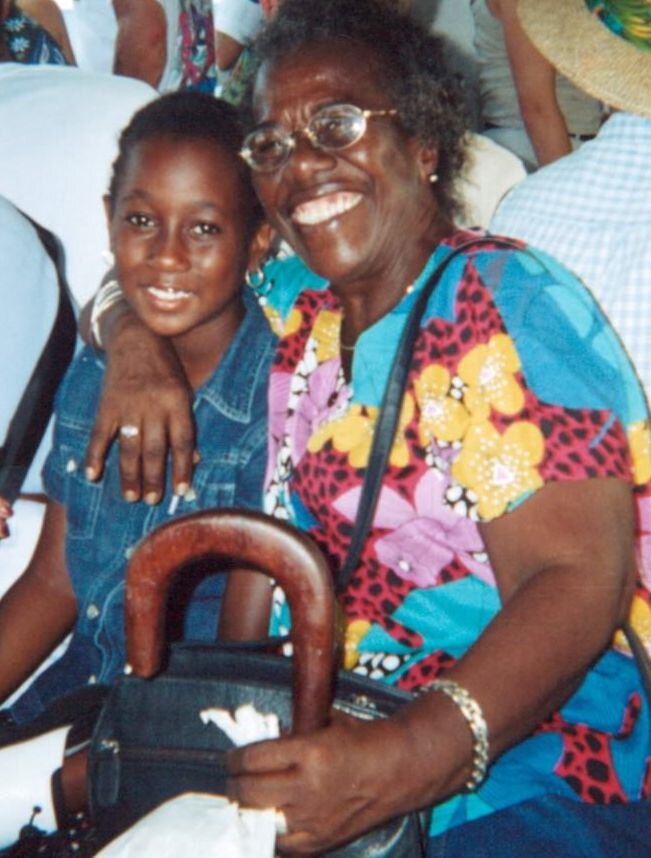Pandemic Priorities: supporting alternatives now is promoting a sustainable economy | P2P Foundation (original) (raw)

Pandemic Priorities: supporting alternatives now is promoting a sustainable economy
Especially in these times, honoring our ancestors is investing in and trusting alternatives that are based in dignity, health and livelihoods for all of us.
In the early 1960s, my grandma was a secretary at the Caymanas Sugar Estate in Portmore, Jamaica. She helped the cane cutters who worked on the estate’s land create a credit union. At that time, workers were acknowledging the problematics of who owned the capital and resources on their island. In 1962, Jamaica gained independence from the British, with the hopes of more national equity and securing workers rights. My grandmother understood that helping the cane cutters pool their money to create a credit union was one step closer to liberation from the confines of colonialism and capitalism. At the time she thought of it as a necessity—as the right thing to do—rather than an alternative economy.

Tej and grandma
Throughout the Caribbean and Africa, the sharing of resources and money is not new. Sou sous and other types of community banking are age-old practices. These traditions even emigrated overseas to places like the U.K. and Canada along with Jamaicans who realized they would not receive the queen’s royalties they learned of during their schooling.
Like Jamaican cane cutters and emigrants realizing they lacked access to the things they needed, we also now find ourselves similarly situated in the current pandemic. As we recognize that people need immediate access to resources, we are realizing that the most effective tools are local economies, regional manufacturing systems, and community banking.
As people succumb to fear, individuals are hoarding the resources we need to protect ourselves against the COVID-19 virus, children are missing meals since schools are shut down, city governments are realizing housing should be a human right as we are called to Shelter in Place, and the federal government is finally acknowledging that freezing student loans will actually bolster the economy. It is clear the systems that currently shape our societies do not work towards human continuity or resilience. In fact, it is this way of life that has resulted in the crises that we are currently in: the health crisis, climate crisis and spiritual crisis.
The pervasiveness of capitalism has overshadowed other types of economies so that we don’t think any other way is possible. Rather than many economies we are told there is one economy, and that one is capitalist. The dominant globalized economy has become so embedded into everyday life that investing in and finding accessible alternatives is a barrier for many of us. In the U.S., buying local clothing or food is a luxury. It is more expensive to buy locally made products than buying fashion or produce from thousands of miles away.
If we are going to make it to the other side of this pandemic and this deteriorating world, then just as others before us have recognized, we have to rely on community interdependence, cultural equity, and alternative economies as a basis moving forward.
Luckily, we don’t have to wait for a SciFi future to participate in alternatives that support a better life for all of us. My grandmother knew this more than half a century ago. Around the world, communities are participating in and building other economies. I honor the work she did by investing in and participating in these communities. I am grateful to be part of an alternative circular economy with a council of womxn. I hope my experience can shed light on some of the current possibilities.
I joined a gifting economy: a Mandala circle. Along with several other amazing womxn, we each gift whichever womxn is in the center of the circle at the time we decide to join. Eventually it’ll be our turn in the center of the circle to receive gifts. We have calls three times a week to discuss our dreams, intentions, challenges and proudest moments. We support one another and share resources. We share what we’d like to do and want to do if money was not an issue. We talk about our work and all that we are currently doing. We laugh and build sisterhood.
The gifts the womxn in the center of the circle receives are monetary. However, giving the gift is not transactional, based in ownership or capital. It is based in love, trust, and the belief that we all deserve to live how we want without having to compete with each other. We gift this womxn knowing that she is free to do whatever she’d like with the money. The womxn in the center is not expected to pay it back and does not have to use it for professional purposes—although she can. We do not put barriers or burdens on the gifts, and trust she will make the right decision with her gifts. When it’s each womxn’s turn in the center, she receives the same agency and trust. We are investing in each other rather than stocks that are attached to extractive, exploitive enterprises.
There are several of these Mandala circles. Some circles gift different amounts of money, and you can start out in a fractal Mandala circle in order to amass enough money to participate in the larger one. The Mandala circle splits so that it can multiply once the womxn in the center has received eight gifts. It is precisely this multiplication factor that allows this form of investment to be soundly sustainable, allowing more womxn to join the movement. At no point in the Mandala circle do you have to beg anyone for money, go to a bank, worry about interest, report on what you’re doing with the money, exploit anyone to get the money…you just have to be engaged in community with others.
In my particular Mandala, each womxn will receive several thousand dollars without strings attached after gifting a little over a thousand dollars to whomever is in the center of the circle when she joins. We do not advertise on social media or do marketing. We do not hold space for those who only want to join for the money. Our circle is not about consumption, trends or not having enough. It is about rejuvenation, healing, and abundance. There is enough in the world, it’s just not distributed fairly. When we have money, we usually spend it on companies that are greedy and do not care about us. This is primarily because these companies are constantly in our face with advertising and usually widely accessible. In our Mandala, we put our money where our values are when we can—whether we have a little of it or a lot.
We are linked in our shared values that thriving livelihoods and collective economics is a way forward. We are connected in our understanding that the ways of our ancestors can get us to the other side of this unsustainable violent system. We are bound by the belief that interdependence and supporting one another is the only way we will all survive. We believe in reciprocity and concentric circles, rather than greed and hierarchies. We believe that sometimes it is your turn to give and sometimes it is your turn to receive. Sometimes it is your turn to lead and sometimes it is your turn to follow. We know that everyone in the circle is deserving and worthy. We know that giving a gift is both selfish and selfless: because you feel good when you do it and the person who gets it feels good when they receive it.
The cane cutters’ credit union in 1960s Jamaica my grandma helped to start and the Mandala circle I’m a part of today are examples of alternatives to the current mainstream economic model. The current economic model really only benefits a wealthy few. The “economy” does not have to feel competitive, exclusive and exhausting. An economy can feel refreshing, collective and inclusive. These are the economies we need to support and build to combat this pandemic, to stop the climate crises, and to transform current ideological backwardness. These are the economies we need to trust. We need each other. The Mandala circle I am in—and other alternative economies—start from this premise.
The time is now, we can’t go back to “normal”— and why would we want to anyways. As Arundhati Roy aptly wrote last week in the Financial Times:
Historically, pandemics have forced humans to break with the past and imagine their world anew. This one is no different. It is a portal, a gateway between one world and the next. We can choose to walk through it, dragging the carcasses of our prejudice and hatred, our avarice, our data banks and dead ideas, our dead rivers and smoky skies behind us. Or we can walk through lightly, with little luggage, ready to imagine another world. And ready to fight for it.
Here are a few alternatives to check out:
- For Streaming: enjoy videos & films on this worker-owned post-capitalist streaming service
- For Food in the Bay Area (co-ops): Mandela Grocery Store and Rainbow Grocery
- For Health in the Bay Area: Berkeley Free Clinic
- For Indigenous Solidarity: contribute to the Shuumi Land Tax, supporting an indigenous women-led land trust
- For Land & Food Justice for POC in California: donate to the Minnow Project
- For Solar Power & Renewable Energy in the Bay Area: worker-owned Sun Light & Power can provide affordable, clean energy for your affordable housing unit or non-profit organization
- For Supplemental / Alternative Education for Black People: 400 + 1 collective centers Black liberation and prosperity (*specifically for Black communities)
- For Banking & Money: Black-owned Credit Union of Atlanta (*you don’t have to be Black to put your money in this credit union)
- For more information on the Mandala circle I’m in send me a direct message, although many circles are all womxn the Mandala Movement is open to all
Lead image: mandala by xavo_rob
